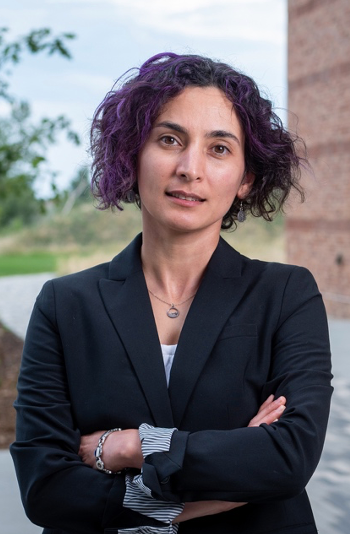
Jacob Shelley is Winner of 2021 EAS Young Investigator Award
The 2021 Eastern Analytical Symposium (EAS) Young Investigator Award will be presented to Jacob Shelley at the EAS Symposium taking place November 15–17, 2021, in Plainsboro, New Jersey.
The 2021 Eastern Analytical Symposium (EAS) Young Investigator Award will be presented to Jacob Shelley at the EAS Symposium taking place November 15–17, 2021, in Plainsboro, New Jersey. The annual EAS awards honor analytical chemists who have distinguished career achievements and who have advanced their fields by superior work in developing theory, techniques, or instrumentation.
Shelley is the Alan Paul Schulz Career Development professor of chemistry at Rensselaer Polytechnic Institute in Troy, New York. He received his BS in Chemistry from Northern Arizona University, where his research under Prof. Diane Stearns focused on examining metal-DNA adducts with inductively coupled plasma–atomic emission spectroscopy (ICP-AES). He worked at Los Alamos National Laboratory for four summers on a wide range of projects including metallomics with X-ray fluorescence detection, developing nanoporous silica substrates for matrix-free MALDI, and method development for detecting a wide range of radioactive materials. He received his PhD from Indiana University where, working with Prof. Gary Hieftje, his research focused on the development, characterization, and application of novel plasma ionization sources for ambient, molecular mass spectrometry with particular attention on the flowing atmospheric-pressure afterglow (FAPA) source.
In 2011, Shelley started his postdoctoral research with Prof. R. Graham Cooks at Purdue University, where he developed portable mass spectrometers capable of in situ analyses. He was awarded an Alexander von Humboldt Post-Doctoral Fellowship to work with Profs. Uwe Karst and Carsten Engelhard at the University of Münster in Germany, in 2012. In 2014, Shelley began his independent academic career as an assistant professor at Kent State University.
Shelley’s current research interests are in the development of new hardware and software tools for mass spectrometry that enable rapid and sensitive detection and identification of analytes in complex matrices. His research group uses high-energy species produced by electrical plasmas to perform unique gas-phase synthesis. Both of these research areas converge in trying to understand the chemical origins of life on Earth as part of the Rensselaer Astrobiology Research and Education (RARE) Center, where he was named the associate director.
Shelley has been recognized for his research accomplishments with the Bunsen-Kirchoff Award by the German Working Group for Analytical Spectroscopy in the German Chemical Society (2017), Spectroscopy’s 2020 Emerging Leader in Atomic Spectroscopy Award, RPI’s School of Science Outstanding Research Award. He has authored 42 published journal articles, four issued United States patents, a book chapter, and has given more than 50 invited presentations at national and international venues.
Newsletter
Get essential updates on the latest spectroscopy technologies, regulatory standards, and best practices—subscribe today to Spectroscopy.





